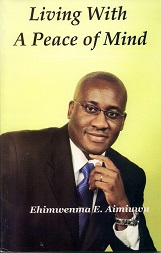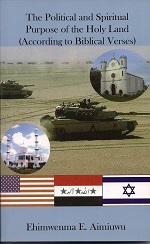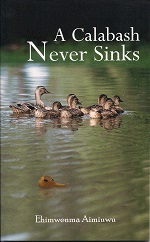 |
The Herald (Harare) OPINION Harare Religious Talk from an Afrocentric Perspective Shi Writing in the Mail and Guardian, 18 August 2000, the ANC head of religious affairs, Cedric Mayson, sees ancestor-based African spirituality as founded on enduring family lineages.
These form complex but traceable links "sourced in the substratum of basic human spirituality that predates the emergence of all organized religions. Invaders tossed it aside because it was not written down, . . . but the strength of African (spirituality) was that it had never been institutionalized. Institutions could be defeated, spiritual experience cannot. It continues to stir a critical mass of people with a holistic experience of life that permeates visions, faith, experience, hope and relationships, but is not tied down to books, buildings, and priesthoods. Many who have joined the congregations of the imported religions still carry with them the insights of their own ancestors. (African Indigenous Spirituality - AIS) expresses a communal awareness . . . (It is an) expression of community building relationships. It prompts a faith defined by relationships not possessions, by caring not by a creed, by enjoying human fulfillment not adhering to orthodoxy . . . (It defines) morality not as an individual goodness, but a cooperative project of survival. It depends on recovering a community consciousness that thrives because people feel involved with one another. |
The Political & Spiritual Purpose of the
Holy Land |
|||
|
Advertise here for just $500 / month |
Advertise here for just $500 / month |
||||
 |
|||||
Few rob and cheat and kill in their own circle, or force family members to live without income in the churches, temple, mosques or power structures . . . (It) affirms the common ground of being, a common ground in all humanity". As a whole body of thought, Indigenous Spirituality guides an African by encompassing all aspects of his/her life. It provides a common bond among Africans and deals with spiritual obligations, interpersonal relations and ritual observances through four rites of passage, celebration and grief, law and ethics, and survival activities. Out of these, comes out African socio-economic and juridical-political institutions, structures and systems. In contrast, some religions turn human interest away from this world to the imaginary world to come by claiming through song and cliches that we do not have a place we call home on this world (hatina musha panyika). Such a religious position sees the condition of the soul after death as having little or no relationship with the current condition of the Biological Body. Indigenous Spirituality is centered on a being, and is intended to procure, secure and address an African's well being, security and protection, here and now ('iye zvino pano'). It does not curse the present and yearn only for the future. Afrocentrically, Mwari Musiki/uMdali, the Creator is not considered as having gender specificity, nor conceived in human-like terms, state and condition. Mwari Musiki/uMdali is the invisible and inherent Energy in the indefinable universe, and the infinite source of the universe beyond the concept of time and space. " . . . When any mind (grows) among us to adulthood, it (grows) beyond . . . fables and (comes) to understand that there is indeed a great force in the world, a force spiritual and able to shape the physical universe, but that force is not something cut off (deposited in a place called heaven), not something separate from ourselves. It is an energy in us, strongest in our working, breathing, thinking together as one people; weakest when we are scattered, confused, broken into individual, unconnected fragments". - Ayi Kwei Armah, 'Two Thousand Seasons'. In Yoruba, it is called Olodumare; in Gikuyu, Masai and Wakamba (Kenyan ethnic languages) it is called Ngai. The Akan call it Onyame or Onyankopon. l Therefore, African Indigenous Spirituality is essentially an acknowledgement and recognition of a supreme spiritual power of life Energy. It is conceived as beginningless and endless, while the universe co-exists with the life Energy. l Akhnton, the 'black' monarch of Ancient Egypt who lived
1,300 years before Jesus Christ and many centuries before King David, preached
and lived a gospel of brotherhood and truth. He preached his belief in one
almighty invisible and formless power, which he called Aton. The "formless"
Power was seen as all-powerful, all caring and a life-giving energy. |
|||||
|
l The capability to ascribe the universe to one supreme power had been in practice by the Akan of Ghana, the Ife of Nigeria, the Dogoh of Mali, the Nubia of Sudan, all the Bantu groups in Southern Africa and many others, long before the Europeans arrived in Africa. Thus, the contemporary belief in a Superior Spirit, so beloved by both Christians and Muslims has been obvious and well known and practiced amongst Africans, whose religiousness goes much further back than the Christian era. l Africans do not pre-occupy themselves with having direct rituals of 'worship' to the Creator, either at a social or an individual level. A relationship with Mwari Musiki, the Creator is through the immediate environs of one's ancestors practiced through the process of libation (kupira or kuteura) directed towards one's ancestors while saying some words appropriate for the occasion. |
Nigeria: Outside the compound |
||||
|
l They represent the most complete and ornate examples of ancient African social, religious, and spiritual thought yet discovered. They are an artistic rendition of the mysteries of life and death. They are the best surviving example of some 200 texts comprising the funerary scrolls that accompanied deceased ancient Egyptians into the afterlife.
The Egyptian Book of the Dead, of which the Papyrus of Ani is one, is composed of some 200 "chapters" of some of the earliest spiritual writings of humanity. These original texts were known to the ancient Egyptians as The Book of Going Forth by Day. They were discovered in Egypt and acquired in 1888 and hastily cut into even lengths and pasted onto wooden boards for shipment to England as a collection of the British Museum before any translation was undertaken. The documents are essential not only for their historic significance, but also for an insight into the African religion and teachings about life. l "The Book of the Coming Forth by Day" is the oldest written document existing to date on religion from which adoptions by many other religions were made and grossly distorted. The Pyramid Texts preceded the Pentateuch/Torah (Old Testament's first five books) by thousand years. The Pentateuch is of an origin not older than 1,078 years, i.e. written from around 700 BCE. The Pyramid Texts and Coffin Texts had been written more than 3,400 years before the Bible. This proves the glorious African religious origins of all 'universalised' religions in the world today. Some of the contents of these ancient Egyptian teachings were adopted and distorted by Jewish copyists and scribes. l "Through 'Mhiravadzimu' or 'Kupira vadzimu' (communication/connectivity with the ancestral spirits), the communication takes the form of monologue although it is essentially conceptualized as a dialogue by the participant. The eldest person speaks to the ancestors on behalf of the rest of the gathering in a language that is full of imagery and rhythm. The living-dead, whose spirits are believed to be caring for the living descendents, are addressed as if they are present. The first breath-unit usually calls for the attention of the ancestral spirits. Fellow supplicants clap hands in agreement with the leading poet. It is imperative for supplicants to hear what the leading poet says so that they ratify his poetry with hand clapping and ululation.Clapping rhythmically - during the recital means that people are of one accord. Women in the end ululate to wrap up the poetic discourse. In the absence of an audience, one can whisper a dedication or briefing to ancestors in order to guarantee their cooperation" - Professor Emmanuel Chiwome, 'A Critical History of Shona Poetry'. l Eurocentric missionaries thought that the absence of any direct worship of the Creator is the absence of divinity in the foundation of African morals and customs. They mistakenly thought that Africans are either atheist or spiritually immature. They just did not understand. l rukwata_ndoro@hotmail.com |
|||||
